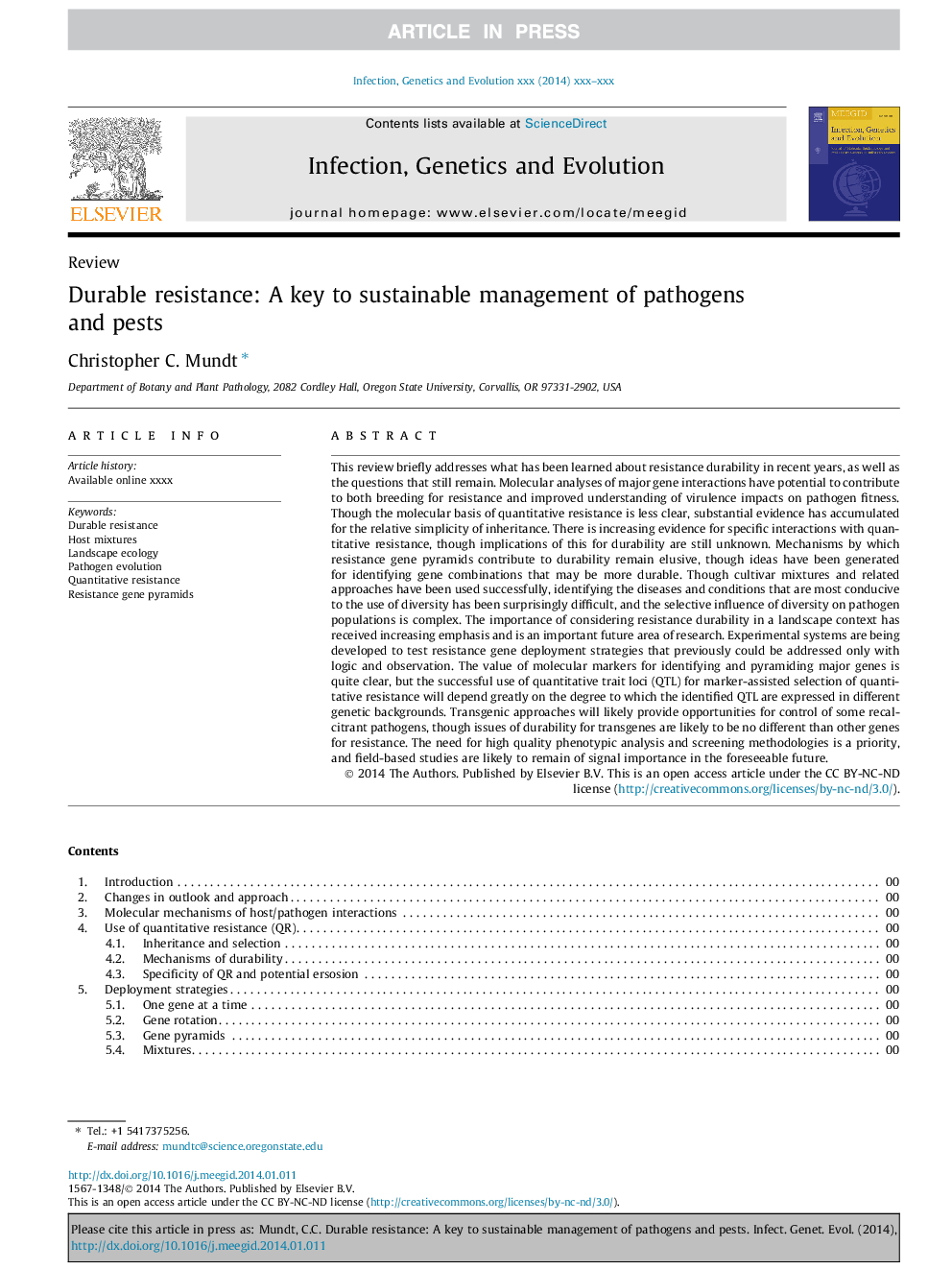| کد مقاله | کد نشریه | سال انتشار | مقاله انگلیسی | نسخه تمام متن |
|---|---|---|---|---|
| 5909832 | 1570176 | 2014 | 10 صفحه PDF | دانلود رایگان |
عنوان انگلیسی مقاله ISI
Durable resistance: A key to sustainable management of pathogens and pests
ترجمه فارسی عنوان
مقاومت دائمی: یک کلید برای مدیریت پایدار پاتوژن ها و آفات
دانلود مقاله + سفارش ترجمه
دانلود مقاله ISI انگلیسی
رایگان برای ایرانیان
کلمات کلیدی
مقاومت دائمی، مخلوط میزبان، محیط زیست چشم انداز، تکامل پاتوژن، مقاومت کم. اهرام ژن مقاومت،
موضوعات مرتبط
علوم زیستی و بیوفناوری
علوم کشاورزی و بیولوژیک
بوم شناسی، تکامل، رفتار و سامانه شناسی
چکیده انگلیسی
This review briefly addresses what has been learned about resistance durability in recent years, as well as the questions that still remain. Molecular analyses of major gene interactions have potential to contribute to both breeding for resistance and improved understanding of virulence impacts on pathogen fitness. Though the molecular basis of quantitative resistance is less clear, substantial evidence has accumulated for the relative simplicity of inheritance. There is increasing evidence for specific interactions with quantitative resistance, though implications of this for durability are still unknown. Mechanisms by which resistance gene pyramids contribute to durability remain elusive, though ideas have been generated for identifying gene combinations that may be more durable. Though cultivar mixtures and related approaches have been used successfully, identifying the diseases and conditions that are most conducive to the use of diversity has been surprisingly difficult, and the selective influence of diversity on pathogen populations is complex. The importance of considering resistance durability in a landscape context has received increasing emphasis and is an important future area of research. Experimental systems are being developed to test resistance gene deployment strategies that previously could be addressed only with logic and observation. The value of molecular markers for identifying and pyramiding major genes is quite clear, but the successful use of quantitative trait loci (QTL) for marker-assisted selection of quantitative resistance will depend greatly on the degree to which the identified QTL are expressed in different genetic backgrounds. Transgenic approaches will likely provide opportunities for control of some recalcitrant pathogens, though issues of durability for transgenes are likely to be no different than other genes for resistance. The need for high quality phenotypic analysis and screening methodologies is a priority, and field-based studies are likely to remain of signal importance in the foreseeable future.
ناشر
Database: Elsevier - ScienceDirect (ساینس دایرکت)
Journal: Infection, Genetics and Evolution - Volume 27, October 2014, Pages 446-455
Journal: Infection, Genetics and Evolution - Volume 27, October 2014, Pages 446-455
نویسندگان
Christopher C. Mundt,
